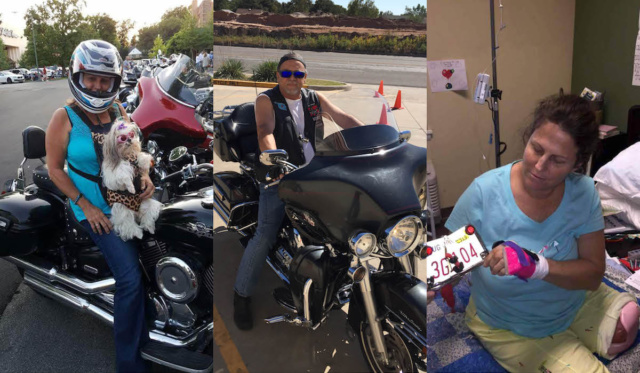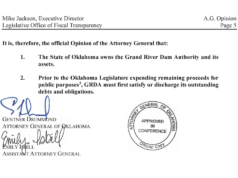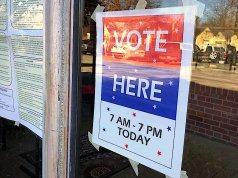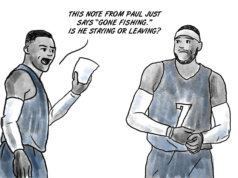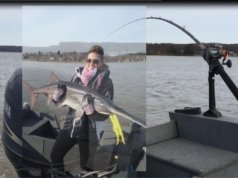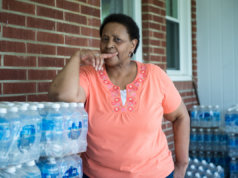(Editor’s note: This is the first of two articles looking at motorcycle culture in Oklahoma. The second will publish Friday.)
Boots striking pavement as they walk toward a bike. The force of a leg pushing down on the footpeg. An engine’s roar as it revs up. Foliage and wildlife all around. The sights, sounds, smells as the world rushes past your motorcycle on the open road.
This sensory stimulation marks much of the appeal for those who ride motorcycles, and sometimes it’s what keeps them coming back; even for Leslie Livingston and Jesse Duncan, who both have reasons never to get on a motorcycle again.
Yet, the thrill still exists in their heads — the call of that engine, the feel of the wind, the rush that comes from being one with the road.
‘Hamburger meat on my left leg’
For Livingston, her ordeal began at the Spavinaw, Oklahoma, QuikTrip in February with a group of 12 bikers on the way to Arkansas. She recalled how she was excited because she had finally found a “calm” group to ride with that allowed her to drive at a safer pace. But sometimes, “safer” doesn’t mean “safe,” and Livingston didn’t realize what was about to happen in the course of just a few seconds.
The curve on the highway south of Grand Lake is considered a dangerous one, and it changed Livingston’s life forever. She remembers seeing eye-to-eye with the driver of a truck as her bike started to slide. She felt the impact of the ground and the bone-crushing weight of the truck’s trailer — with a boat on top — rolling over her legs as she lay there on the road, helpless.
Conscious throughout the entire accident, Livingston sat up but decided to lie back down after looking at her left leg, which had been shredded during the wreck.
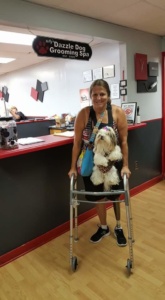
“I saw hamburger meat on my left leg,” she said.
Friends did their best to stabilize Livingston’s leg until paramedics arrived to airlift her to St. John Medical Center in Tulsa. Nine months later, she describes the pain as overwhelming while the medical crew applied a more effective tourniquet to her leg in the ambulance. Still, she remained conscious because of something she had remembered when she had been in nursing school: Fainting might lead to her losing a pulse.
Livingston, who has been riding for 39 years, held on to consciousness until she was aware she was at the hospital and saw doctors and nurses standing at the door. Then, and only then, did she allow herself to let go and rest.
The fallout from her wreck was significant despite the lack of damage to Leslie’s helmet (just a nick) and her chaps (still intact with little damage). The trailer crushed Leslie’s right femur, her left hand was broken and only half of her left leg was intact.
“The X-ray looked like you had dropped a box of toothpicks on the floor,” Leslie said.
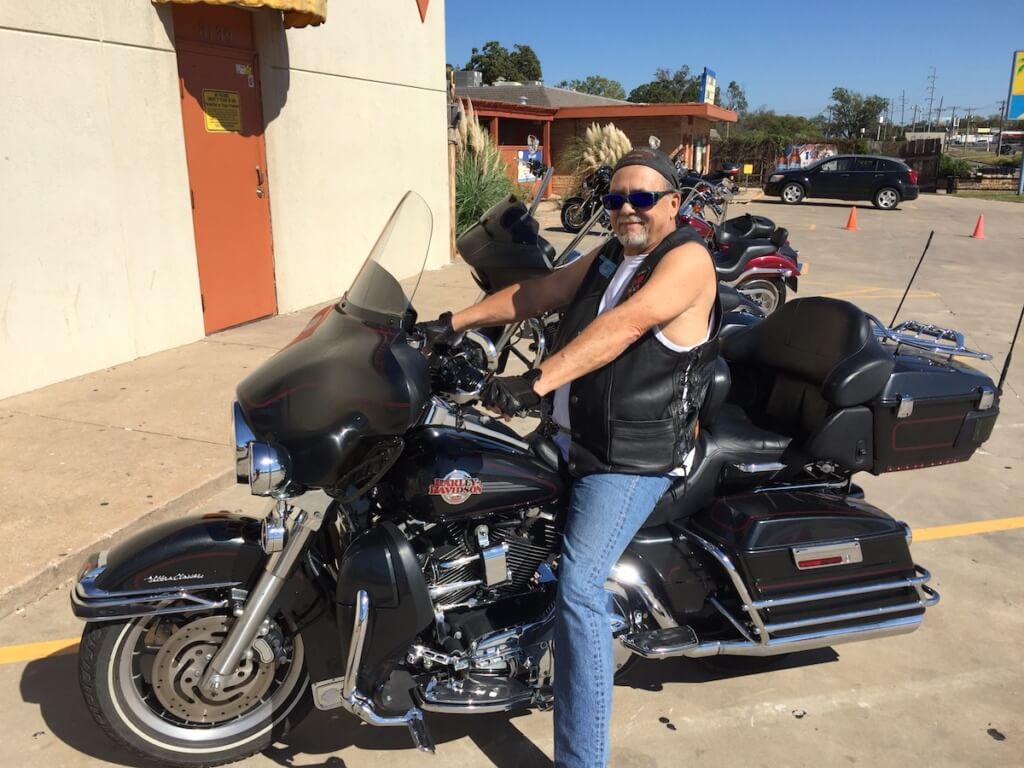
Oh, deer
Conversely, Jesse Duncan doesn’t remember much about the day that changed his life. Coming up on three years of what he calls his “new life,” Jesse recalls that night as fuzzy at best. His vague memories co-mingle with those of two other friends at the scene, both of whom had varying stories as to what happened.
Duncan does know one thing for sure about the wreck that put him in a coma for one and a-half months as part of over 100 days in the hospital: He lived to learn from what had happened.
“I think it saved my life,” Duncan said of the wreck. “I’m alive and actually should be in the ground or scattered.”
Duncan, who fell in love with riding as a 12-year-old, was on his bike with a couple of friends near Webbers Falls when a deer jumped out in front of him. The rest is a vague memory for him, as he blacked out the moment his head hit the concrete. He was medi-flighted to Tulsa, where his injuries included multiple fractures to his right eye, skull fractures, brain trauma, multiple right rib fractures, right pulmonary contusion and a fractured pelvis, right clavicle and left distal radius. Jesse also experienced acute respiratory failure that required him to be hooked up to a breathing apparatus.
“Until you go through it, you don’t know what the trip is like,” Duncan said, recalling the severity of his wreck.
Despite all of it, however, Duncan said he was ready to get back on his bike. Having wrecked without a helmet, he decided to put on a helmet. That first helmet lasted a month, and the second helmet lasted a week. He now rides helmetless and enjoys the open road as if nothing had ever happened.
Duncan is committed to helping others who may have suffered as much as he did as a member of the Downed Bikers Association. He celebrates his new life that still includes regularly getting out on his bike without a helmet.
The road to recovery
Livingston now walks with a cane after having gone through trials and tribulations that started with a wheelchair before graduating to a walker. A prosthetic has replaced her leg below the knee, which allows her more mobility. Her focus lately has been on gardening and continuing to heal her body.
Prior to the wreck, Livingston had been on multiple trips to Sturgis, South Dakota, the motorcycle community’s mecca. One of those trips, when she actually rode helmetless for the first time, stands out for her more than the others. She said the feeling of the wind in her face was “invigorating,” but it also served as a reminder that she could never ride without a helmet again.
Despite everything, Livingston said she misses the peacefulness she had when she was on a bike.
“There’s a freedom with a motorcycle you just don’t get in any other place,” she said.
The helmet, however, is what allows her to even entertain the thought of riding again.
“I am convinced that saved my life,” she said.
Duncan, meanwhile, continues down his road choosing to ride without one.
Helmet or no helmet, Duncan and Livingston both love the road too much just to quit riding. And when they are on a bike, they both believe the road returns the love over and over again.
(Correction: A previous version of this story included a misattributed photograph. NonDoc regrets the error.)









